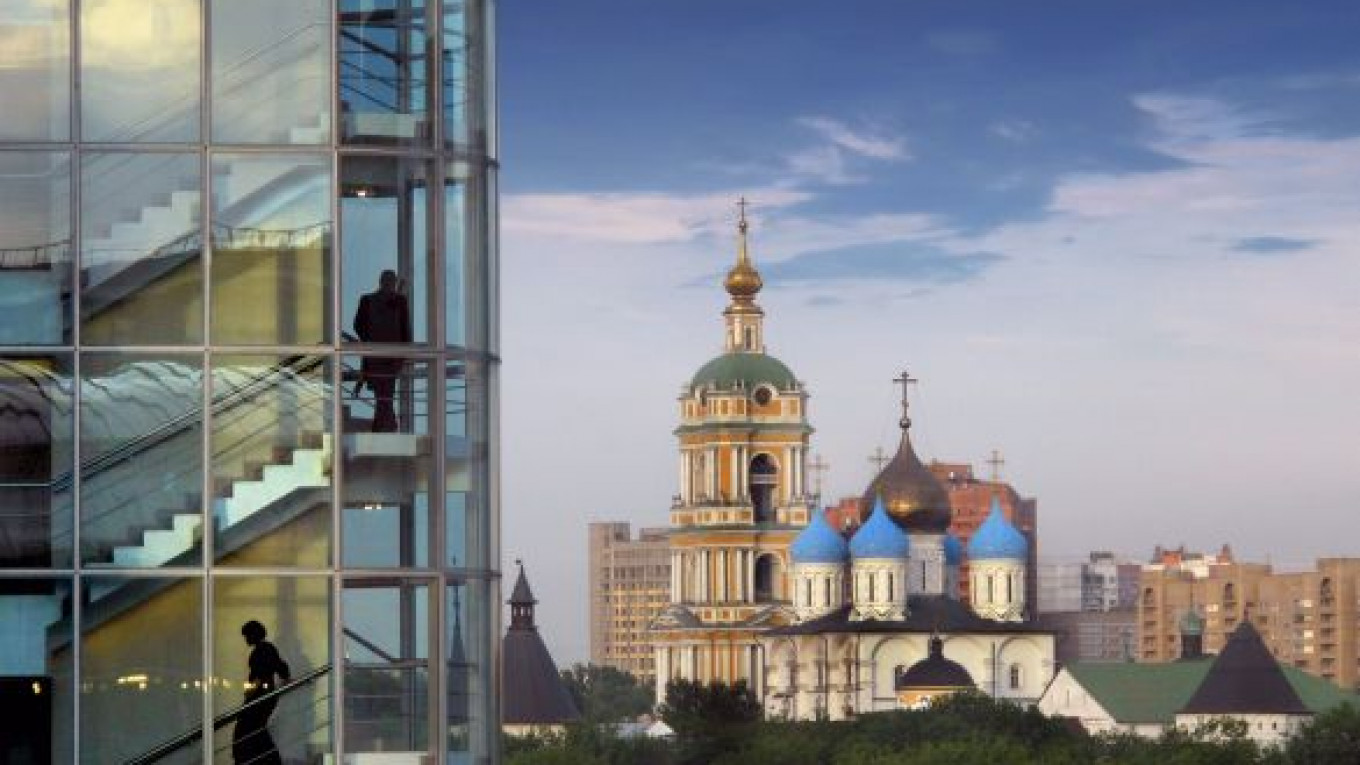An unsteady drizzle that fell on the capital Tuesday will delay the arrival of smog from already simmering peat bog fires until at least next week, weather forecasters said.
Wildfires and peat bog fires during last summer's record heat wave left Moscow choking on smog for weeks and prompted an exodus of people determined to spend their vacations away from the city.
The first smoke from peat bog fires had been expected to waft into Moscow on Tuesday, carried by winds from the east, where most of the fires are located, the Federal Meteorological Service told .
But the rains that started Tuesday prevented the smoke from reaching the capital. The wet weather will continue until at least Sunday, Interfax reported, citing the .
A change in wind direction, which is expected to shift to the south to southwest in the coming days, will also help, the report said.
The Moscow weather bureau has promised rain until next week, with a break on Saturday. But it will remain hot — up to 32 degrees Celsius during the daytime — with the exception of Wednesday, when the whether is expected to cool down to about 25 degrees, according to the weather bureau's web site.
A bureau spokeswoman said by telephone that its representatives would only comment for a fee. The head of the federal forecaster, Roman Vilfand, could not be reached for comment.
Firefighters, meanwhile, put out 14 forest fires occupying a modest 3.5 hectares, including six peat bog fires on an area of 1.6 hectares on Monday, the Moscow region branch of the Emergency Situations Ministry on its web site Tuesday. At the height of last summer's fires, some 55,000 hectares of forest and peat bogs were burning simultaneously across the country.
Last week, city officials acknowledged that they had failed to prepare for another heat spell. Although the city government promised last month to equip all city hospitals and ambulances with air conditioners, Leonid Pechatnikov, who heads the City Hall's health care department, said the authorities did not expect to follow through on that promise this summer, Moskovskiye Novosti Friday.
The city has allocated 5.7 billion rubles ($205 million) for the air conditioners, but many hospitals were not given enough time to order them in time for the summer heat, the report said.
In the first days of July, when daily temperatures in the city exceeded 30 degrees Celsius, the temperature inside ambulances reached 42 to 48 C, several unidentified doctors complained to the Monday.
A Message from The Moscow Times:
Dear readers,
We are facing unprecedented challenges. Russia's Prosecutor General's Office has designated The Moscow Times as an "undesirable" organization, criminalizing our work and putting our staff at risk of prosecution. This follows our earlier unjust labeling as a "foreign agent."
These actions are direct attempts to silence independent journalism in Russia. The authorities claim our work "discredits the decisions of the Russian leadership." We see things differently: we strive to provide accurate, unbiased reporting on Russia.
We, the journalists of The Moscow Times, refuse to be silenced. But to continue our work, we need your help.
Your support, no matter how small, makes a world of difference. If you can, please support us monthly starting from just $2. It's quick to set up, and every contribution makes a significant impact.
By supporting The Moscow Times, you're defending open, independent journalism in the face of repression. Thank you for standing with us.
Remind me later.






